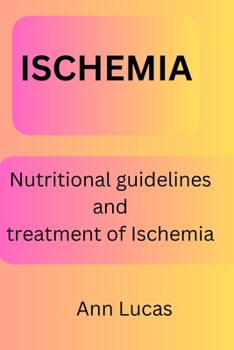Ischemia: Nutritional guidelines and prevention of Ischemia
Cerebral ischemia or brain ischemia, is a condition that occurs when there isn't enough blood flow to the brain to meet metabolic demand. This leads to limited oxygen supply or cerebral hypoxia and leads to the death of brain tissue, cerebral infarction, or ischemic stroke. It is a sub-type of stroke along with subarachnoid hemorrhage and intracerebral hemorrhage.
Other conditions that may result from brain ischemia are stroke, cardiorespiratory arrest, and irreversible brain damage. The causes of brain ischemia can vary from sickle cell anemia to congenital heart defects.
The term "stroke" can be divided into three categories: brain ischemia, subarachnoid hemorrhage and intracerebral hemorrhage. Brain ischemia can be further sectioned into thrombotic, embolic, and hypoperfusion. Thrombotic and embolic are focal or multifocal in nature while hypoperfusion affects the brain altogether.
The symptoms of cerebral ischemia range from mild to severe. Symptoms can last from a few seconds to a few minutes or for extended periods of time. If the brain becomes damaged irreversibly and tissue death occurs, the symptoms may be permanent
Cerebral ischemia is linked to many diseases or irregularities. Patients with compressed blood vessels, plaque buildup in the arteries, blood clots, very low blood pressure as a result of heart attack, congenital heart defects and even sickle cell anemia have a higher tendency to cerebral ischemia in comparison to their healthy counterparts.





